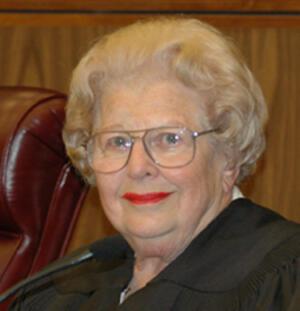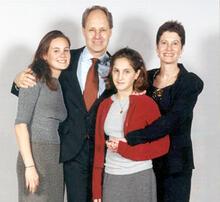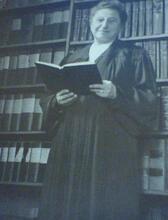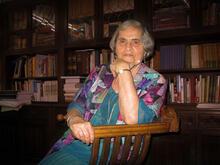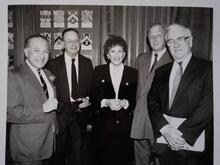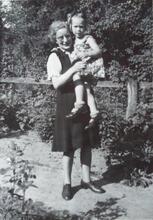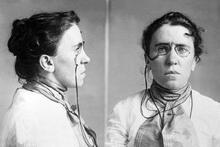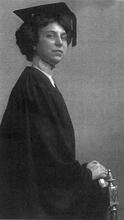Norma Levy Shapiro
Norma Levy Shapiro was born in 1958 to working-class parents. She was educated at the University of Michigan and later studied law at the University of Pennsylvania. During the early 1950s, Shapiro taught a number of law courses at the University of Pennsylvania, and in 1956 she joined the prestigious Philadelphia law firm of Dechert, Price, and Rhoads. On August 11, 1978, President Jimmy Carter nominated her to be the first woman judge on the United States Third Circuit District Court. Several court decisions gained Judge Shapiro national recognition, and she received many awards for her service. She believed her Jewish education and upbringing led her to the pursuit of justice under the law and have added a spiritual dimension to her everyday life.
Early Life and Education
Once, following a landmark decision in a prisoners’ rights case, U.S. federal judge Norma Levy Shapiro was described by a detractor as Philadelphia’s “Public Enemy Number One.” Her many advocates argued that her opinions were merely guided by the law. Such have been the dichotomous views regarding the difficult, often divisive, legal and social issues decided by senior members of the federal judiciary, such as Shapiro.
She was born Norma Sondra Levy on July 27, 1928, in Philadelphia. She and her brother Robert (a law school professor) were raised in Cheltenham, a Philadelphia suburb. Their father, Bert, a furniture salesman, was born in Russia and immigrated to the United States around 1900. Their mother, Jane Kotkin, was a teacher. Norma graduated with honors from Cheltenham High School and from the University of Michigan in 1948 with a BA in political theory. At Michigan, she was elected to Phi Beta Kappa, Phi Beta Phi, and Alpha Lamda Delta. After college, she entered the Law School of the University of Pennsylvania, from which she graduated in 1951, magna cum laude, Order of the Coif, and the only woman in her class. While at law school, she was editor of the Law Review and married Bernard Shapiro, a doctor specializing in the emerging field of nuclear medicine.
Career
Following graduation, Shapiro served as a clerk (1951–1952) for Justice Horace Stern of the Pennsylvania Supreme Court. In 1954, she returned to the Law School of the University of Pennsylvania for a one-year graduate fellowship in criminal law, with an emphasis on juvenile court law.
During the early 1950s, Shapiro taught a number of law courses at the University of Pennsylvania and in 1956 she joined the prestigious Philadelphia law firm of Dechert, Price and Rhoads as an associate. In 1973, despite leaving the firm as a full-time lawyer for nine years to raise her three sons (Finley, an electrical engineer; Neil, an attorney; and Aaron, a surgeon) and working part-time instead, she was made partner. On August 11, 1978, President Jimmy Carter nominated her to be the first woman judge on the United States Third Circuit District Court.
Several court decisions gained Judge Shapiro national recognition. Perhaps the most famous was Harris v. Reeves, filed by a group of prisoners in 1982, complaining that prison overcrowding violated their constitutional guarantee against cruel and unusual punishment. Shapiro agreed with the plaintiffs, established a limit on Philadelphia prison populations, and became the de facto overseer of the prisons. In 1993, she ruled in favor of public housing in Chester, Pennsylvania, and placed the Chester Housing Authority in receivership, with the goal of improving public housing conditions. Shapiro received many awards for her legal, civic, and philanthropic service from organizations as diverse as the American Bar Association, the Federal Bar Association, the Philadelphia Bar Association, the Golden Slipper Club, and the National Council of Jewish Women. She served as a member or as the chair of Philadelphia and American Bar Association committees, and on the boards of professional societies and judicial bodies, the Jewish Publication Society, the University of Pennsylvania Law School, the Albert Einstein Medical Center, the Women’s Law Project, the Lower Merion [Pa.] School Board, the Jewish Community Relations Council of Greater Philadelphia, and the Philadelphia Federation of Jewish Agencies. Shapiro assumed senior status on December 31, 1998, having served more than 20 years as a federal judge.
Shapiro believed that her Jewish education and upbringing led her to the pursuit of justice under the law and have added a spiritual dimension to her everyday life. It taught her the importance of humility and moderation, as the Jewish positions on many social issues “aren’t all black and white” but require a careful balance. She also felt an obligation to represent the Jewish community and to try to “be a judge that Jewish people feel would honor the religion,” so she never kept court in session late on Friday or scheduled anything for a SabbathShabbat or Jewish holiday. Shapiro’s Jewish background gave her a greater understanding of the evils of discrimination and social injustice, the blessings of liberty, and the importance of each individual’s efforts to make the world better.
Shapiro passed away on July 22, 2016, at the age of 87.
Camden Courier-Post, October 28, 1993.
NYTimes, August 14, 1996.
Philadelphia Inquirer Magazine (December 25, 1994).
Philadelphia Magazine (October 1995).
Jewish World Review (February 10, 2000).
Washington Jewish Week (2000).

